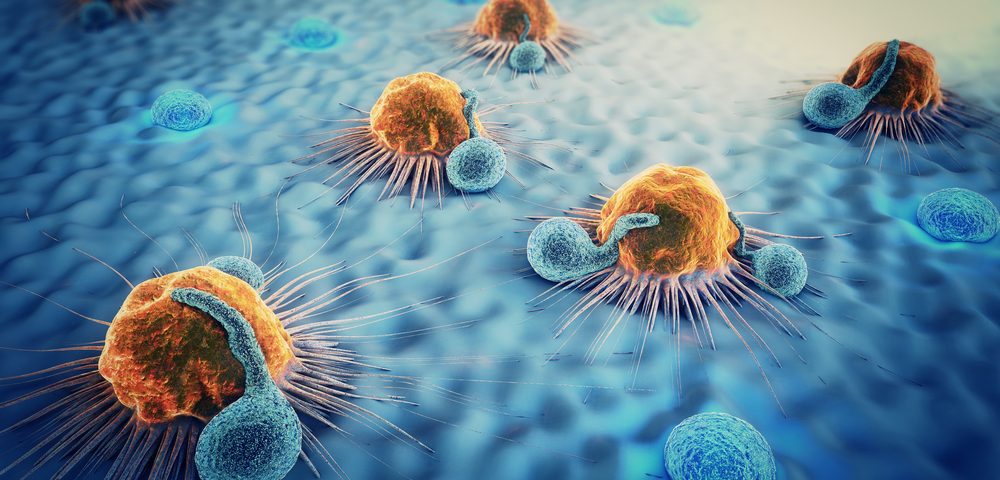Surface Oncology is requesting approval to open a Phase 1/1b clinical trial testing SRF617, an anti-CD39 antibody, either alone or in combination with other cancer immunotherapies in people with advanced solid tumors.
The request was submitted to the U.S. Food and Drug Administration (FDA), and the company also intends to ask to open a separate trial in another candidate antibody, SRF388, before the end of 2019.
If both investigational new drug (IND) applications are accepted by the FDA, Surface expects to launch their clinical trials in early 2020.
“We welcome this opportunity to dive into the compelling data underpinning our lead programs’ differentiated approaches to overcoming the immunosuppressive tumor microenvironment,” Jeff Goater, chief executive officer of Surface Oncology, said in a press release.
Increasing evidence shows that cancer cells can alter their surrounding environment to produce a suitable location for their uncontrolled growth. For example, these cells can prevent immune cells from penetrating the tumor microenvironment, this way “hijacking” their ability to detect and kill cancers.
To do this, cancer cells need energy. CD39 is an enzyme that is involved in the production of adenosine — a molecule involved in cellular energy transfer — and the breakdown of adenosine triphosphate (ATP), a molecule that provides energy to drive several processes within cells.
Accumulation of adenosine can lead to immune cell suppression. Maintaining the levels of ATP, in contrast, increases the proliferation of several types of immune cells, such as dendritic cells and T-cells.
SRF617 is a human anti-CD39 antibody that works by binding to and inhibiting CD39, this way reducing extracellular adenosine and maintaining ATP levels to promote immune responses against tumors.
Preclinical data has shown that SRF617 can enhance the proliferation of anti-tumor CD4-T cells. SRF617 was also seen to inhibit tumor growth and promote the infiltration of immune cells into the tumor microenvironment in a mouse model of multiple myeloma.
These results were recently shared in the scientific poster, “The fully human antibody SRF617 is a potent enzymatic inhibitor of CD39 with strong immunomodulatory activity,” during the Society for Immunotherapy of Cancer Annual Meeting held in Maryland.
SRF388, Surface’s other therapy candidate, is an antibody that inhibits the immunosuppressive molecule IL-27, whose levels are increased in cancer and are linked with poor prognosis. Specifically, IL-27 appears to have a critical role in tumor progression in cancers such as hepatocellular (liver) and renal cell (kidney) carcinoma.
Preclinical data has shown that SRF813 inhibits IL-27 signaling and its immunosuppressive effects. Treatment with SRF813 also resulted in lesser lung metastasis in a mouse model.
“The Surface team is energized by the compelling preclinical datasets across our programs, and is excited about advancing SRF617 and SRF388 into clinical development,” said Rob Ross, the company’s chief medical officer.
“[W]e believe SRF388 has the ability to inhibit the highly immunosuppressive cytokine IL-27, which gives it the potential to be a potent therapeutic. We look forward to providing clinical updates from the SRF388 and SRF617 programs in late 2020,” he added.


